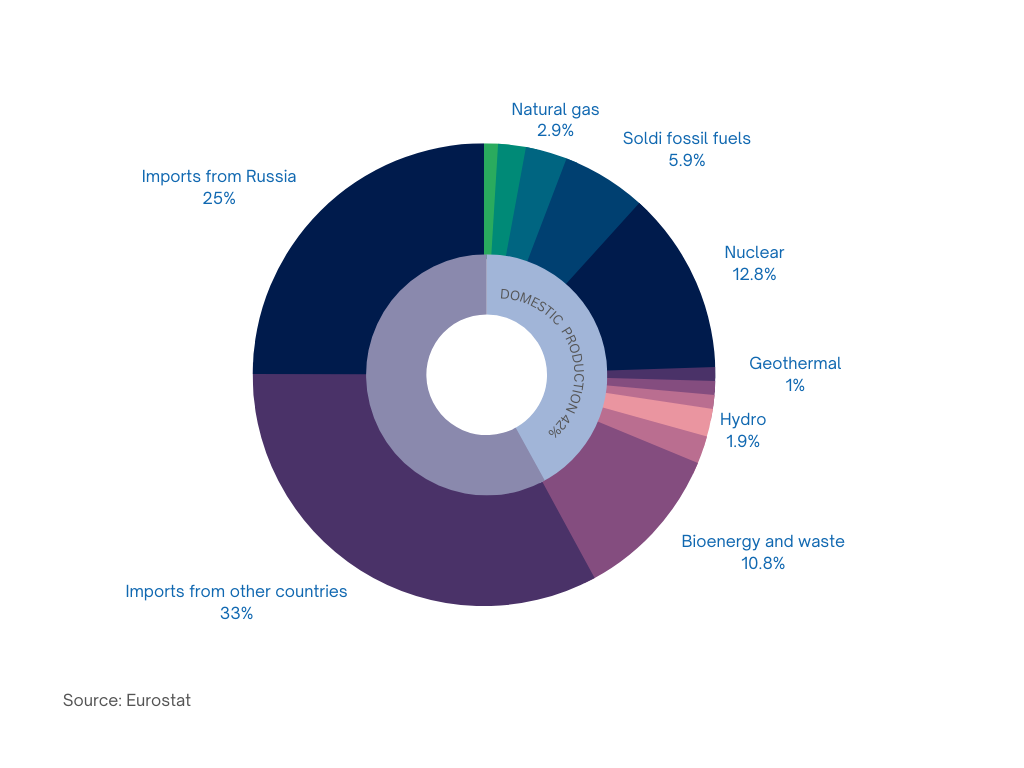HOW AUTONOMOUS IS THE EU ENERGY SYSTEM?
Last Friday marked the end of COP27. While the objective of keeping global heating below 1.5C was reiterated, the global conference failed to deliver on a commitment by the world’s major emitters to phase down fossil fuels.
The energy sector, responsible for more than two-thirds of global greenhouse emissions, is mainly powered by fossil fuels. According to the International Renewable Agency (IRENA), only 29% of global electricity generation currently comes from renewables, and carbon emissions continue an upward trend.
So, how is the EU performing in terms of renewables?

In 2020 the EU produced 42% of its total energy supply. Of this 42%, only 41% came from renewable energy sources — representing 22% of our overall energy needs. RepowerEU’s ambition aims at becoming independent from Russia’s gas and oil while maintaining our current economic production and reducing our climate footprint. This intention will entail the replacement of 25% of our total energy consumption with alternative sources, which seems on the way steadily as winter approaches despite the scale of the challenge.
In this context, it must become a priority for the Renewable Energy Directive and EU Member States to promote bioenergy sources produced in full synergy with food production rather than restrict them. Indeed, limiting bioenergy production means limiting European energy autonomy. The further limitation would generate an additional threat to the EU energy supply and increased reliance on imported fossil sources — meaning overall higher emissions.
Biomass-based energy amounts to 57% of the renewable energy domestically produced in Europe, making it almost 10% of the total European energy supply. In comparison, all other renewable energy sources combined make up only 7%, making it unrealistic to fill the necessary energy supply gap in the short run without biomass. Only nuclear represents a bigger « Made in Europe » energy provider (in need of imported Uranium).
Therefore, instead of limiting the activities of EU biorefineries, which would increase energy imports from other countries, causing the Union to become more and more dependent on foreign actors and fossil fuels, European should further encourage this sector, optimising carbon cycles.
To meet the 45% renewable energy target by 2030 – as adopted by the European Parliament this week – it is now the time to increase energy production from ALL renewable energy sources. A greener and more independent Europe cannot materialise by betting on a single “magic wand” solution. Shaping a sustainable and diversified energy mix shall be the way forward, with a strong biofuels (liquid and gas) component for all sectors, including the most complex to decarbonise like transports.